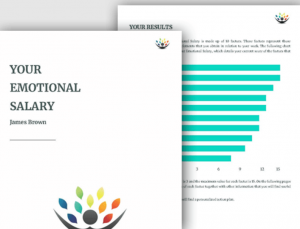When times are uncertain and you are unsure of what lies ahead for your business, it can be easy to lose focus on what got you there in the first place – your employees. Consider this, if the pandemic ended tomorrow and everything was back to normal, would your business thrive if it didn’t retain its top talent?
This year has been tough on everyone in different ways, but it is as important now more than ever to focus on the needs of your employees so that your business can return to the strong position it once had pre-pandemic, and continue to grow in a sustainable way.
When top performers leave an organisation, it can often cause workloads to increase, and productivity levels and morale to suffer. We don’t want our best people to leave in normal times, but we certainly don’t want it to happen when times are already tough when we will likely need them to help our business recover. What can we do, in that case, to ensure that we retain top talent in times of uncertainty?
Start With Discovery
By constantly making sure that your employees feel fulfilled and happy in the workplace, whether at home or in an office, you can ensure that your best people don’t leave you in normal times, nor when times are tight and you need them most.
How do you do this? Firstly, by putting yourself at your employees’ service. What can you do to help them?
Following that, learn to ask them the right questions to discover what is important to them at this moment in time and what would help their employee experience at your company.

A large majority of issues in organisations can be solved or prevented simply by improving internal communication processes. By implementing an open communication strategy that allows for your employees to come to you when they have issues or ideas, you are fostering a more positive environment where all of your staff, including your top talent feel valued and trusted.
Some ways you can improve communication can be through workshops delivered internally or remotely. For example, this workshop on how to build a high-performing team. You can also begin to discover what your employees are feeling and what their needs are through tools like the Emotional Salary Barometer.
Be Flexible and Agile Where Possible
This year of remote work life will be a discovery of a new way of preferred working for some employees, whereas others will be craving life at the office. If your organisation and processes allow for it, it could be beneficial for your employees to be given the choice between remote and in-house work, or a mix of the two, to suit their preferences.
With more companies offering flexible hours and remote working from not only your domestic market but also internationally, this increases the competition for your top talent from outside your home market. It may be in your best interests to have a conversation with your employees on an individual basis, perhaps during performance reviews, and figure out what their preference would be. It could be a key way to retain top talent who may not want to return to an office working environment.
Monitor Your Management
They say that employees leave bad managers quicker than they leave bad jobs. If you are in a position where it is vital that you retain top talent, then make sure that your leaders are skilled in people management, and are valued and respected by your employees.
Don’t forget to give continuous feedback and support. Many are not used to managing people in difficult times, and adopting such a stance magnifies your strengths, and helps you identify your weaknesses, so you can work on them.
Ways you can do this is to provide management level training and support to ensure that your managers and leaders are constantly learning and improving their skills, not only from a technical perspective, but also in how they relate and interact with your employees on an interpersonal level.
Beware of Burnout
Leaders and managers of an organisation can contribute to high instances of burnout among employees, and if you want to retain top talent, this may be an issue that needs to be addressed in your organisation.
Burnout can become much more of a common problem for employees when working from home because of the fine line between work space and time, and home space and time.
As a manager, you can create strategies to avoid this. One simple idea you can do immediately is to start meetings 10 minutes after the hour to give employees a small amount of time to move or prepare, instead of rushing between back to back meetings.
It’s important to clarify the company’s policies about working hours in your communication plan and be adamant in their implementation, so as to avoid burnout situations both at home and in office scenarios.
Provide Training & Education
What employees value most in a company is the knowledge that they are valued and important. This can be easily shown from a leadership level by investing in your employees. Providing access and funds to relevant training and education programs can show your employees that you are serious about their long-term future with your company.
By offering your employees more responsibility and the chance to improve their skills, they will also feel more invested in your company. This will encourage your top performers to stick around longer.

All of the above can be implemented in some shape or form in any company, regardless of size or industry. They are tips and tools that can be tailored to suit your employees. By focusing on your employees, you will also be building your company’s reputation, both internally and externally, which can further encourage top talent to come to you in the future.
Overall, our best advice is to be honest and transparent with your employees about any situation, however difficult this can sometimes be. Don’t shy away from sharing any non-confidential decisions to be made or plans for the future.
By sharing how your employees are part of the recovery plan and how they are essential to you as you move into the future, you are demonstrating to them that they are a priority. If your goal is to more easily retain top talent in the future, this is often a key element for them when considering whether to stay with a company or not.
Nevertheless, despite your best attempts, good people will still leave sometimes. The best thing you can do, in that case, is to learn from them and their experience. Create an exit process that allows them to be as honest and open as possible, and align that with an effective handover period/structure.
To discuss using the Emotional Salary Barometer as part of your strategy to retain top talent in these uncertain times, contact us here.
———————————————————————————————————————————————————————————————–
Live Your Brand (the creators of the Emotional Salary Barometer) are people and organisational development specialists with passion, expertise and continuous learning at our core. We work with organisations that understand that their people are central to their success, both now and in the future, whatever challenges they may face. Through our tools and programmes, we encourage teams and organisations to listen deeply and be continuously inspired and energised by their people. We facilitate the creation of a platform for growth for all employees in the organisation, driving a clear sense of purpose and direction in order to deliver real and sustainable business results.